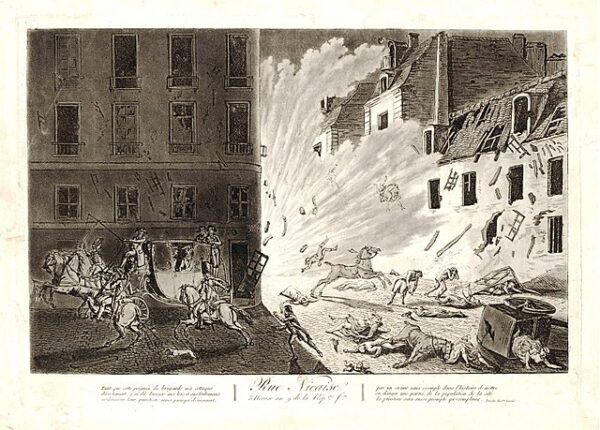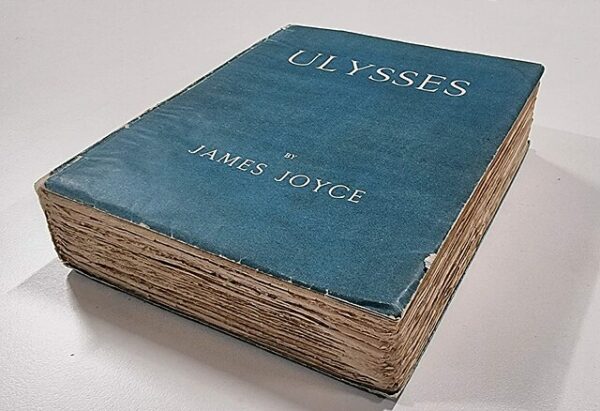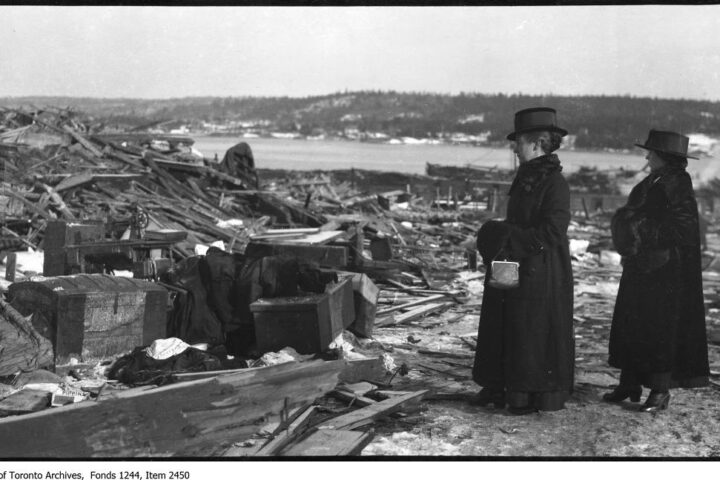On the cold evening of December 24, 1800, an explosion shattered the Rue Saint-Nicaise in Paris, sending shock waves through a nation already rife with political tension. The target of this assassination attempt was none other than Napoleon Bonaparte, the First Consul of the French Republic, who had risen to prominence on the tides of the Revolution and was reshaping France with his reforms.
Conceived by royalist insurgents, the plot was a desperate bid to halt the relentless march of Bonaparte’s power and influence. The conspirators, disenchanted with the direction of the new republic and yearning for a return to monarchical rule, devised a plan of dramatic and deadly proportions. They constructed an “infernal machine,” a barrel filled with gunpowder and shrapnel, and positioned it on the Rue Saint-Nicaise, along the route that Bonaparte was expected to take to the Opera.
The timing of the attack was meticulously planned to coincide with the passing of Bonaparte’s carriage. However, a combination of chance and fate intervened. The procession was delayed, and the infernal machine detonated prematurely. The explosion was catastrophic, claiming the lives of several bystanders and wounding many others. Yet, by a narrow margin, Napoleon and his entourage escaped unscathed, the French leader’s carriage having passed moments before the blast.
In the aftermath of the explosion, the Rue Saint-Nicaise was a vision of devastation. The attack sent a clear message of the lengths to which Bonaparte’s enemies would go to stop his ascendancy. The incident swiftly became a tool for Napoleon to justify tightening his grip on power. He used the failed assassination to fuel a campaign against his political adversaries, leading to the arrest and execution of several suspects, including the reputed mastermind behind the plot, Georges Cadoudal, a Breton royalist.
The Plot of the Rue Saint-Nicaise, though a failed attempt on Bonaparte’s life, had far-reaching consequences. It served to consolidate Napoleon’s authority and hastened his transformation from First Consul to Emperor. The event also underscored the fragility of the young republic, still reeling from the Revolution’s upheaval, and foreshadowed the tumultuous years that lay ahead as France grappled with its identity and governance.






